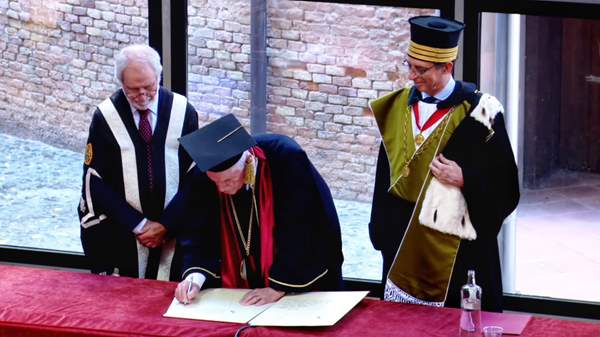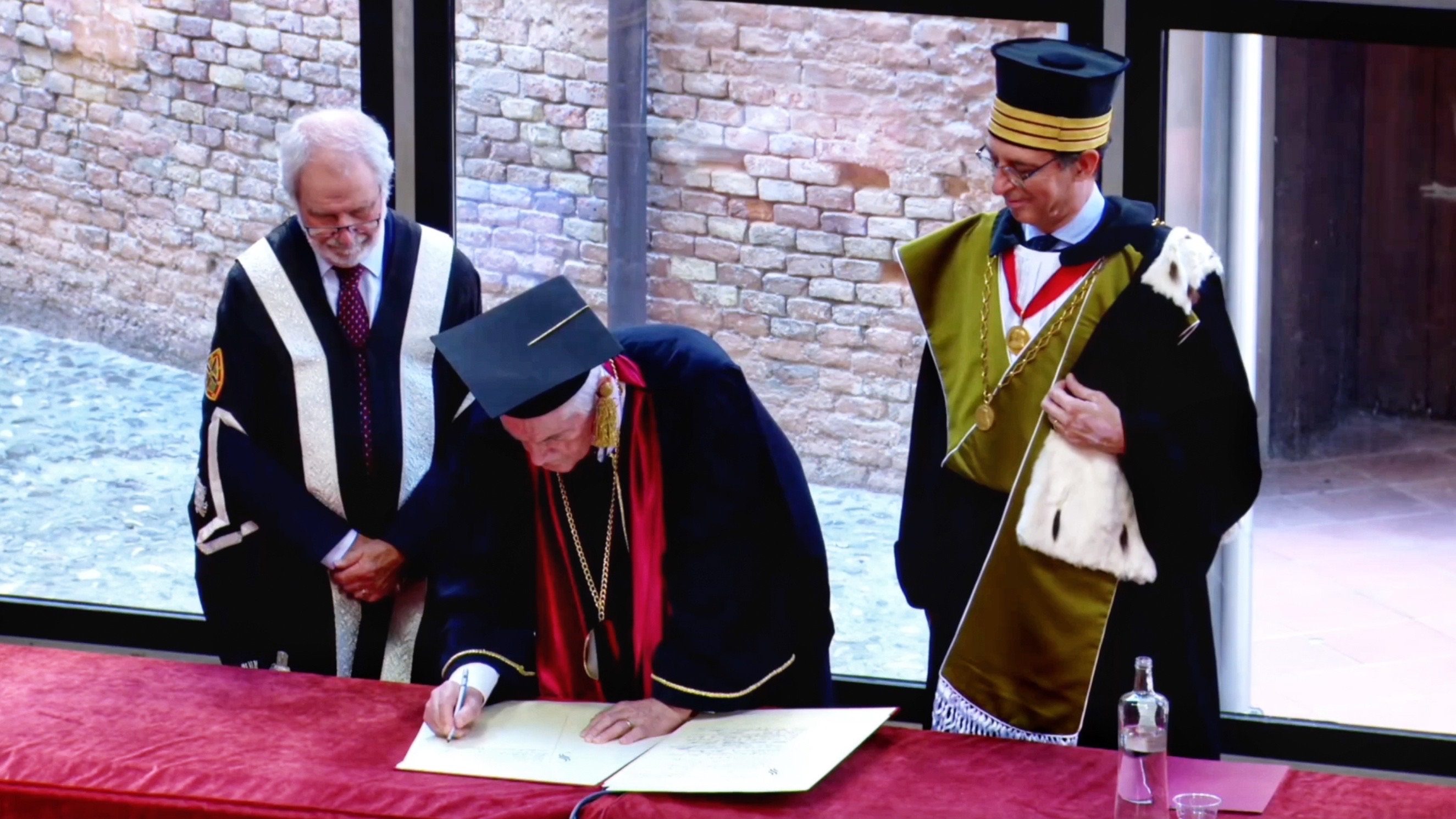
Alma Mater signed Magna Charta Universitatum 2020

The president of Alma Mater Europaea, Ludvik Toplak, takes part in the ceremony commemorating the anniversary of the Magna Charta Universitatum in Bologna. At an event that brings together world university leaders, the Alma Mater signed the Magna Charta declaration, which declares the connection between the research and educational work of universities and emphasizes academic freedom and institutional and economic autonomy.
Magna Charta Universitatum 1988 is a document signed by 965 rectors and heads of universities from Europe and elsewhere. It sets forth the principles of academic freedom and institutional autonomy as guides for the future good governance and self-understanding of universities. Alma Mater Europaea – ECM joined the signatories, who strive to ensure the integrity of educational and scientific work in institutions and society, in 2017.
"Today, I signed the declaration of the Magna Charta Universitatum, which was renewed in 2020. It emphasizes the university's responsibility for developing and disseminating knowledge, especially in education, and its responsibility to society. It is about an active role and responsibility, which is also the topic of this year's conference," said the president of Alma Mater Europaea ECM, Ludvik Toplak. He added that Alma Mater is strategically oriented towards developing quality, complementarity, and deficit, European-oriented applied and competitive study programs that train for employable professions. "Today, we are talking about the social responsibility of the university. The university's responsibility for regional, national, and general human development is emphasized," he concludes.
